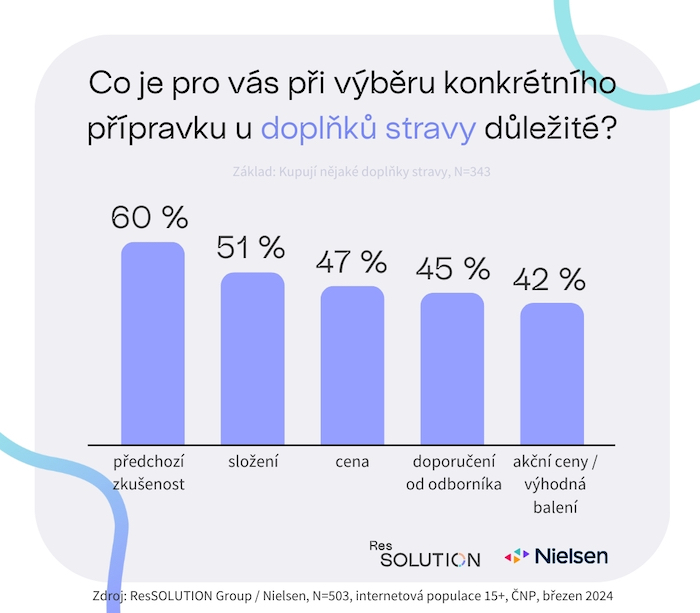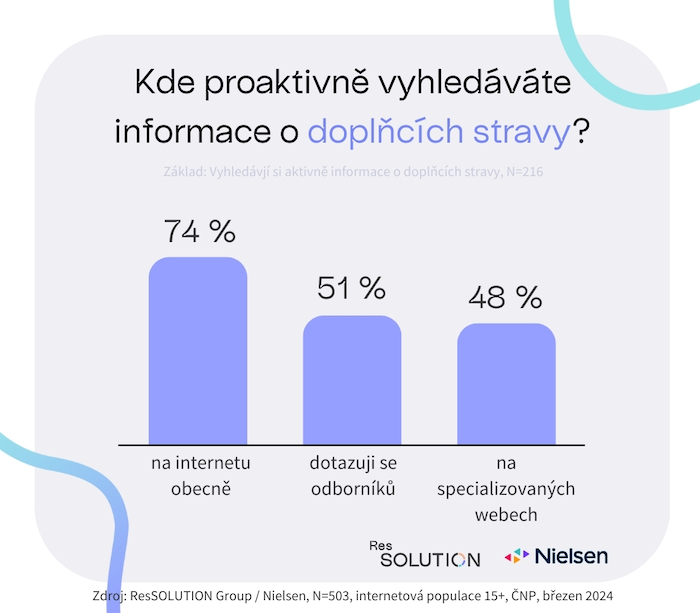Two out of three online Czechs buy dietary supplements. While half of them have a clear idea in advance which brand they will choose, the other half do not know. For the respondents, previous experience, ingredients and price are important when choosing. They consider information from a doctor or pharmacist to be a trustworthy source of information about dietary supplements, as well as from family and friends, and they do not trust advertisements, especially those on social media. This is according to a survey conducted online by Ressolution Group and Nielsen on a sample of 500 respondents over 15 years of age, who are part of the Czech National Panel.
Dietary supplements - vitamins, minerals, probiotics, collagen and others - are taken regularly by about a third of online Czechs. Almost 70% buy them, and women and respondents with at least a high school diploma tend to do so. They buy these products primarily for themselves (95%), followed by their spouse (32%) and their children (25%).
More than half of the respondents (52%) do not have a brand in mind, while 48% know which brand they will choose. In terms of factors that are important to buyers when choosing dietary supplements, previous experience leads the way, cited by three-fifths of respondents. For half of them, the composition of the supplement (type and quantity of individual ingredients) is an important factor, while between 40% and 50% of respondents also mentioned price, recommendations from an expert and special prices/bargain packs. A fifth of the respondents considered recommendations from family and friends to be important.

Regarding the place of purchase of dietary supplements, about half of the buyers choose brick-and-mortar pharmacies (the tendency decreases with higher education), a quarter choose online pharmacies (here the tendency increases with education) and the TOP 3 is closed with 17% by specialized websites, e-shops with dietary supplements.
Over 60% of those who buy dietary supplements actively search for information about them. Women are more likely to do so than men, and this trend also increases with higher education. Three quarters of those who actively seek information use the internet as a source in general (e.g. Google searches), while half ask professionals (doctors or pharmacists) and a similar proportion look for information on specialised websites. Around a quarter of respondents consistently ask family/acquaintances, search on internet forums and social networks.

In terms of trustworthiness of information sources, respondents who buy dietary supplements reported information from doctors and pharmacists as the most trustworthy, followed by information from family/acquaintances. Only a minority of respondents found advertisements on social media, the internet and television to be trustworthy.
Source: mediaguru.cz



